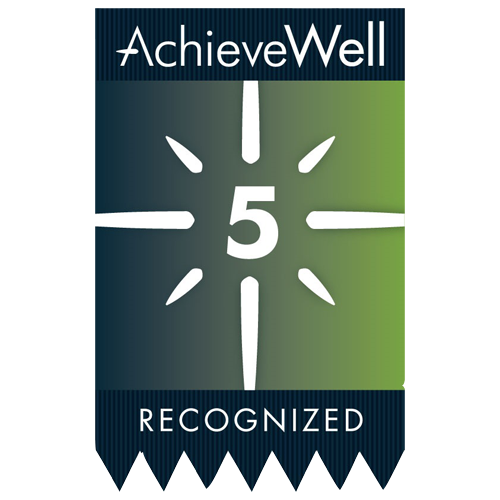COVID-19 vaccination is a topic of frequent conversations nationally and specifically for employers. According to data reported by Mayo Clinic, just over 63% of the U.S. population has had at least 1 dose of a 2 dose vaccine and just over 54% are fully vaccinated (including those who have received a 1 dose vaccine). West Virginia and Wyoming are tied for the lowest vaccination rate at 39.9%, while Vermont boasts the highest percentage with 68.6% of its population being fully vaccinated. Mayo Clinic’s data states that the target vaccination rate for the U.S. population is at least 80%, leaving just over a quarter of the population to be vaccinated in order to hit the low end of the range.
Health experts see this as a problem. They contest that vaccination is the most effective way to control the spread of COVID-19, especially the Delta variant. For employers, controlling the spread of the virus is of the utmost importance as they work to maintain uninterrupted operations and keep employees healthy.
The employer situation on vaccines has certainly changed with President Biden’s September 9, 2021 announcement which requires employers with more than 100 employees to mandate employees receive the COVID-19 vaccination or submit to weekly testing. This article provides updates on President Biden’s announcement, the corresponding OSHA regulations, and commentary regarding employer considerations.
President Biden to Mandate COVID-19 Vaccine for Federal Employees & Large Employers
On Sept. 9, 2021, President Biden announced that the Occupational Safety and Health Administration (OSHA) is developing an emergency temporary standard (ETS). The new ETS will require private-sector employers with 100 or more employees to ensure their workforce is fully vaccinated or test negative for COVID-19 every week before coming to work.
The government estimates that the ETS will impact over 80 million private-sector workers. These new rules come shortly after the Pfizer-BioNTech coronavirus vaccine was fully approved for use by the Food and Drug Administration, enabling the White House to fight the pandemic more aggressively.
Prior to the President’s announcement, OSHA already had a COVID-19 ETS for the health care and health care support workers. This ETS covers hospitals, nursing homes and assisted living facilities; emergency responders; home health care workers; and employees in ambulatory care settings where suspected or confirmed COVID-19 patients are treated.
The new ETS that OSHA is developing based on the President’s announcement, will expand beyond the current ETS for health care workers to all private sector employers with 100 or more employees. The new ETS will require employers to ensure their workforce is either fully vaccinated or test negative for COVID-19 every week before coming to work.
A formal notice from OSHA on the new ETS is still pending and there are many questions about what the employer requirements will be under the new regulations. While no specific date has been provided for the new ETS, on September 10, 2021, Labor Department officials reported that it would be issued in the “coming weeks.” On the same webinar, Labor Department officials did confirm the following:
- Employers will be required to provide paid time off to employees for both receiving a COVID-19 vaccination as well as recovery from any adverse side effects from the vaccine. At the same time, officials also confirmed that employers could require employees to use existing PTO or sick time banks for this purpose.
- Labor Department officials reported that remote workers, those workers that are not working in contact with others, would not be covered by the ETS, as long as they are not reporting to the workplace.
- 100 employees under the ETS means 100 employees company-wide, not per location, division, or other method of segmentation. The definition of “employees” is still a question that will likely be addressed in the ETS or other documentation.
- One of the biggest questions related to the new ETS has been how and what information needs to be collected related to vaccination and testing status for employees. Labor Department officials reported that these requirements will be provided in the pending ETS.
- Regarding testing, Labor Department officials have reported that the ETS will outline who (employer or employee) will be responsible for paying for the weekly COVID-19 testing. No guidance has been provided as to what kind of testing (antigen, PCR, etc.) is required nor did officials state whether it will be outlined in the ETS.
- For collectively bargained populations, Labor Department officials have confirmed that the ETS will not change any collective bargaining agreement obligations, similar to all other OSHA standards.
Employers will be anxiously awaiting the information around requirements, documentation and logistics included in the pending OSHA ETS. While employers wait for the release of the ETS, employers should continue to protect at-risk, unvaccinated, and fully vaccinated workers with appropriate COVID-19 containment protocols. Once issued, employers will need to become familiar with the private sector ETS and put processes and procedures in place to comply and avoid OSHA penalties.
What are Companies Doing?
Prior to the Biden announcement on COVID-19 vaccination mandates, many employers had avoided mandating COVID-19 vaccines, but some had taken the opposite approach. Notably, United Airlines, Goldman Sachs, Google, Walmart and the federal government, among others, had introduced vaccine mandates as conditions of employment for at least some of their workers.
Additionally, some hospital groups have been firing workers who won’t comply with their requirements, demonstrating how important some businesses consider COVID-19 vaccination.
According to a recent survey from Willis Towers Watson, over half (52%) of employers said they were going to implement some form of vaccine mandate for at least some of their employees, even before the Biden announcement. Many organizations have simply encouraged vaccination while considering their best routes forward, including the use of incentives or penalties.
Incentives in Action
Incentives are nothing new to employers; these perks can include gift cards, extra time off, raffle prizes or cash. Some workplaces are using incentives to encourage vaccinations among their employees—get a shot, receive a prize.
The use of incentives indicates how far an organization is willing to go to get employees vaccinated while still falling short of a mandate. Walmart is currently offering $150 to their workers who get the shot; Cigna is offering $200. But they’re not the only ones paying up. Kroger, McDonald’s, Aldi, Target and other large retailers are providing incentives in exchange for COVID-19 vaccinations. Some of these companies are offering cash, paid time off or funds to pay for transportation to a vaccination site.
Even state governments are trying to incentivize their citizens into getting a COVID-19 vaccine. Many states have introduced lotteries where anyone who gets a shot is entered to win thousands of dollars, tickets to sporting events, vacations or other prizes.
Penalties in Action
Incentives aren’t an employer’s only option when it comes to encouraging vaccination. Some have chosen to use the stick instead of the carrot, issuing penalties to employees who refuse to get vaccinated.
Most recently, Delta Air Lines announced steep penalties for unvaccinated workers. Existing employees aren’t required to be vaccinated as a condition of employment (new ones are), but they face significant disadvantages for refusing the shot. Specifically, unvaccinated employees must pay a $200 monthly surcharge for health benefits and undergo weekly COVID-19 testing. Additionally, the company will not provide pay protection to unvaccinated workers who contract COVID-19.
Delta Air Lines’ CEO said this surcharge will help offset the $50,000 the company spends, on average, for COVID-19-related hospitalizations. And this line of thinking seems to be shared among other employers. According to Mercer, more and more businesses are considering using surcharges to get employees vaccinated.
The pending OHSA private-sector ETS on COVID-19 vaccination/testing will certainly have a major impact on employer vaccine strategies. Providing incentives or imposing penalties may become irrelevant in those strategies based on the ETS and the strategy that employers take.
Employer Considerations
At this point, it may seem like there are three straightforward options available to employers who want vaccinated workers:
- Mandate vaccination (which is supported by the pending OSHA ETS)
- Incentivize vaccination
- Penalize unvaccinated workers
Yet, as simple as these options may seem, each comes with unique legal implications.
Vaccine Mandates
The legality of requiring a COVID-19 vaccination is certainly bolstered by President Biden’s September 9th announcement and the forthcoming OSHA ETS requiring employers with more than 100 employees to mandate COVID-19 vaccination or test their employees weekly for COVID-19. Certainly employers with fewer than 100 employees will not be subject to the ETS, but may want to consider their own initiatives for COVID-19 vaccination and testing.
Vaccine mandates aren’t anything new in the United States. For instance, children must be inoculated before they can attend school. It’s generally agreed upon that employers are legally allowed to require vaccinations among employees, especially when employees must work closely together or alongside a high-risk population—still, state laws may differ on the subject, so employers will want to check with local legal counsel.
Regarding COVID-19 vaccinations, a mandatory vaccination policy must meet the Americans with Disabilities Act (ADA) standard of “job-related and consistent with business necessity.” Further, Title VII of the Civil Rights Act (Title VII) and the ADA require an employer to provide reasonable accommodations for employees who, because of a disability or a sincerely held religious belief, practice or observance, do not get vaccinated for COVID-19 unless providing an accommodation would pose an undue hardship on the employer’s business operation. The analysis for undue hardship will differ depending on whether the accommodation is for a disability or for religion. An employer introducing a COVID-19 vaccination policy and requiring documentation or other confirmation of vaccination should contemplate notifying all employees that the employer will consider requests for reasonable accommodations based on disability or religion on an individualized basis. It’s unclear currently whether any of these requirements will be relaxed due to the pending OSHA ETS.
Vaccine Incentives
Employers are generally allowed to offer incentives, such as cash payments, gift cards or other rewards, for getting vaccinated. Under Equal Employment Opportunity Commission (EEOC) guidance, employers can offer an incentive to employees to voluntarily provide documentation or other confirmation of a vaccination received on their own from a third-party provider. However, if the employer or its agent administers the vaccination, the employer can only offer an incentive that is not so substantial as to be coercive. This is because vaccinations require employees to answer pre-vaccination disability-related screening questions, so a very large incentive could make employees feel pressured to disclose protected medical information, therefore running afoul of the ADA.
Unfortunately, the EEOC has not clarified how large of an incentive would constitute coercion. Employers considering vaccination incentives will want to keep an eye out for emerging government guidance.
Vaccine Penalties/Surcharges
Levying penalties, specifically premium surcharges, against unvaccinated workers is a complex and rapidly evolving issue. Such a penalty would likely be implemented through a wellness program subject to unique rules under the Health Insurance Portability and Accountability Act (HIPAA), the Affordable Care Act (ACA) and more. As such, employers must be careful to comply with all applicable laws. At the time of this writing, the federal government has not issued specific guidance on surcharges issued to unvaccinated workers. That alone is a major sign that employers should proceed cautiously.
Employers should consider a wide range of factors when determining whether surcharges are appropriate for their employees, including but not limited to:
- ADA and HIPAA nondiscrimination rules
- ACA plan affordability thresholds, as applicable
- Offering reasonable alternatives to those who cannot be vaccinated for reasons protected by law
Additionally, penalties beyond surcharges, such as withholding pay protection, may be subject to workplace laws. This is a highly complex and developing topic. Employers are encouraged to consult with legal counsel before moving forward with penalties or surcharges related to COVID-19 vaccinations.
Certainly, the pending OHSA private-sector ETS on COVID-19 vaccination/testing will have a major impact on employer strategies. Providing incentives or imposing penalties may become irrelevant in those strategies based on the ETS and the strategy that employers take. Further, there may be legal considerations around offering incentives or imposing penalties based on the pending OSHA ETS.
Conclusion
Getting employees vaccinated is a top priority for many organizations. In fact, it’s so important that companies are charging unvaccinated employees fees in some cases and firing them in others. The recent announcement by President Biden and pending OSHA ETS elevates the conversation around vaccination of workforces to protect against COVID-19.
While awaiting the final ETS from OSHA, employers should continue their current COVID-19 prevention and containment strategies, including encouraging employees to be vaccinated, appropriate wearing of masks and requiring employees who are sick to stay home until they recover from their illness.
Reach out to LHD Benefit Advisors for more workplace resources, including employee communications to help encourage vaccination.





